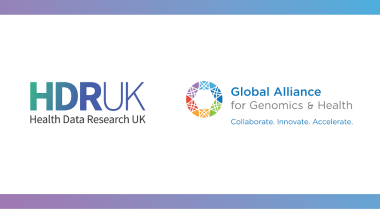Statement from the Chief Investigators of the Randomised Evaluation of COVid-19 thERapY (RECOVERY) Trial on dexamethasone, 16 June 2020
16 June 2020
Low-cost dexamethasone reduces death by up to one third in hospitalised patients with severe respiratory complications of COVID-19
Professor Peter Horby and Professor Martin Landray, chief investigators of the Randomised Evaluation of COVid-19 thERapY (RECOVERY) trial, said:
In March of this year, RECOVERY was established as a randomised clinical trial to test a range of potential treatments for COVID-19, including low-dose dexamethasone (a steroid treatment). Over 11,500 patients have been enrolled from over 175 NHS hospitals in the UK.
On 8 June, recruitment to the dexamethasone arm was halted since, in the view of the trial Steering Committee, sufficient patients had been enrolled to establish whether or not the drug had a meaningful benefit.
A total of 2104 patients were randomised to receive dexamethasone 6 mg once per day (either by mouth or by intravenous injection) for ten days and were compared with 4321 patients randomised to usual care alone. Among the patients who received usual care alone, 28-day mortality was highest in those who required ventilation (41%), intermediate in those patients who required oxygen only (25%), and lowest among those who did not require any respiratory intervention (13%).
Dexamethasone reduced deaths by one-third in ventilated patients (rate ratio 0.65 [95% confidence interval 0.48 to 0.88]; p=0.0003) and by one fifth in other patients receiving oxygen only (0.80 [0.67 to 0.96]; p=0.0021). There was no benefit among those patients who did not require respiratory support (1.22 [0.86 to 1.75; p=0.14).
Based on these results, 1 death would be prevented by treatment of around 8 ventilated patients or around 25 patients requiring oxygen alone.
Given the public health importance of these results, we are now working to publish the full details as soon as possible.
Peter Horby, Professor of Emerging Infectious Diseases in the Nuffield Department of Medicine, University of Oxford, and one of the Chief Investigators for the trial, said:
‘Dexamethasone is the first drug to be shown to improve survival in COVID-19. This is an extremely welcome result. The survival benefit is clear and large in those patients who are sick enough to require oxygen treatment, so dexamethasone should now become standard of care in these patients. Dexamethasone is inexpensive, on the shelf, and can be used immediately to save lives worldwide.’
Martin Landray, Professor of Medicine and Epidemiology at the Nuffield Department of Population Health, University of Oxford, one of the Chief Investigators, said ‘Since the appearance of COVID-19 six months ago, the search has been on for treatments that can improve survival, particularly in the sickest patients. These preliminary results from the RECOVERY trial are very clear – dexamethasone reduces the risk of death among patients with severe respiratory complications. COVID-19 is a global disease – it is fantastic that the first treatment demonstrated to reduce mortality is one that is instantly available and affordable worldwide.’
Notes
Full details of the study protocol and related materials are available at www.recoverytrial.net.
A range of potential treatments have been suggested for COVID-19 but it has been unclear whether any of them will turn out to be more effective in improving survival than the usual standard of hospital care which all patients will receive.
The RECOVERY Trial is a large, randomised controlled trial of possible treatments for patients admitted to hospital with COVID-19. Over 11,500 patients have been randomised to the following treatment arms, or no additional treatment:
- Lopinavir-Ritonavir (commonly used to treat HIV)
- Low-dose Dexamethasone (a type of steroid, which typically used to reduce inflammation)
- Hydroxychloroquine (which has now been stopped due to lack of efficacy)
- Azithromycin (a commonly used antibiotic)
- Tocilizumab (an anti-inflammatory treatment given by injection)
- Convalescent plasma (collected from donors who have recovered from COVID-19 and contains antibodies against the SARS-CoV-2 virus).
Overall dexamethasone reduced the 28-day mortality rate by 17% (0.83 [0.74 to 0.92]; P=0.0007) with a highly significant trend showing greatest benefit among those patients requiring ventilation (test for trend p<0.001). But it is important to recognise that we found no evidence of benefit for patients who did not require oxygen and we did not study patients outside the hospital setting. Follow-up is complete for over 94% of participants.
The RECOVERY trial is conducted by the registered clinical trials units with the Nuffield Department of Population Health in partnership with the Nuffield Department of Medicine. The trial is supported by a grant to the University of Oxford from UK Research and Innovation/National Institute for Health Research (NIHR) and by core funding provided by NIHR Oxford Biomedical Research Centre, Wellcome, the Bill and Melinda Gates Foundation, the Department for International Development, Health Data Research UK, the Medical Research Council Population Health Research Unit, and NIHR Clinical Trials Unit Support Funding.
The RECOVERY trial involves many thousands of doctors, nurses, pharmacists, and research administrators at over 175 hospitals across the whole of the UK, supported by staff at the NIHR Clinical Research Network, NHS DigiTrials, Public Health England, Public Health Scotland, Department of Health & Social Care, and the NHS in England, Scotland, Wales and Northern Ireland.



